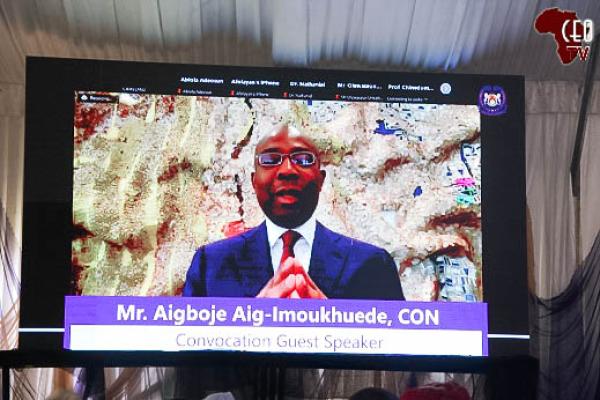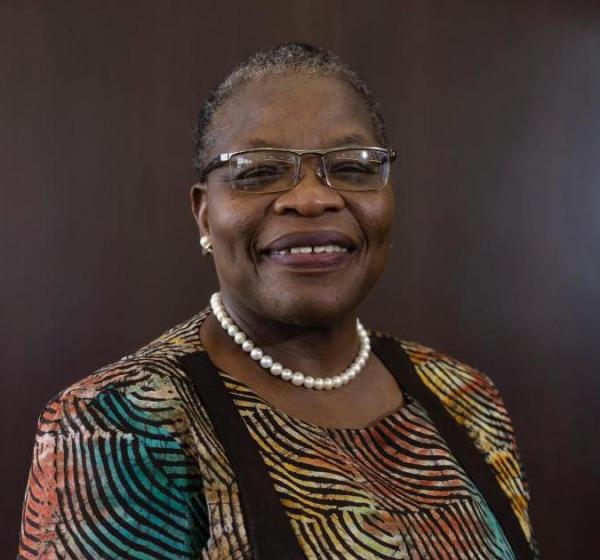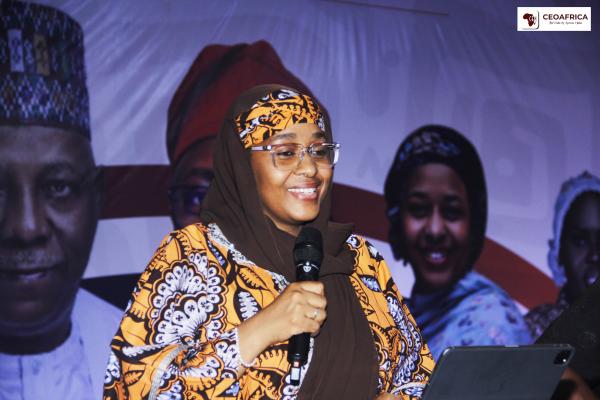
Thursday 9th December 2021:The Chairman, Coronation Capital and Founder of AIG-Imukhuede Foundation, Mr Aigboje AIG- Imoukhuede,CON. has advised graduands of the Chrisland University Abeokuta, to seek internship opportunities and to start thinking of post graduate education.
Imokhuede gave the advise as Guest lecturer during a lecture which held on Wednesday to celebrate the University’s 3rd Convocation ceremony.
While speaking virtually on the topic he titled; YOUNG, EDUCATED AND THEN WHAT?,
he expressed delight over being chosen to deliver the speech owing to the fact that he has always been part of the history of the university due to the long-standing relationship between his late mother and the founder of the University.
Imokhuede however, lamented the growing and ugly situation of lack of jobs currently ravaging the country.
He said,” Just like the graduands we celebrate today, I also recorded this milestone in 1986 as a Law graduate from the University of Benin. I can therefore relate with the thoughts going through the minds of those we celebrate today. You feel elated, you feel the sense of achievement that comes with doing something difficult and worthwhile and you certainly deserve to feel this today. Back in my days, upon graduation we also felt elated but also in addition the university graduate in the 1980s had a sense of confidence and optimism about what comes after graduation, 35 years ago I left university believing that my entire graduating class would not just to survive in the 20th century global context but also to thrive.
“It would be remiss of me given what I know about Nigeria’s economy and job market conditions in 2021 to expect that you to approach life after graduation with the same confidence and optimism as we did then. After all when I graduated in 1986 Nigeria’s unemployment rate was 5.3% and almost all graduates were sure to find a job within a reasonable period after graduation. The issue was not if but when and what type of Job would you land. Back in 1986, our university degrees were a passport to employment opportunities. This is not your reality, it would be most unfortunate if I gloss over the challenges facing our Nigerian graduates, even if I have to share this bad news on your day of joy. The UK’s Financial Times recently reported that Nigeria’s unemployment rate now stands at 33.3%, the report went on to say that 53.4% of people aged 15 to 24 were unemployed, whilst 34% of the people aged 25 to 34 were unemployed.
“ Today about twenty-five (25) million Nigerian graduates are unemployed and every year we produce an additional 600,000 graduates into an economy which is unable to provide them with jobs.So, I will not be surprised if along with the joy and sense of achievement that comes with graduating you do feel insecure and anxious of what the future holds for you.
“That is why I have titled my lecture ‘’young, educated and then what?” Too many Nigerian graduates are unemployed, underemployed, or wrongly employed, and I am sure you will agree with me that our nations graduate employment crises must be addressed for the benefit of your generation of Nigerian and generations to follow.”
He further listed the main causes of the countries graduate unemployment crises as weak public sector leadership and graduate skill deficiencies adding that If fixed, the nation will be on the way to addressing the problem.
Imokhuede said “. If our public sector leaders cannot deliver an economy that grows at an average rate of 7% our graduates will continue to struggle to find jobs. India provides pointers as to how a country can be led to produce graduates whose skills are fit for purpose. Indian graduates are key drivers of the 4th industrial revolution locally and globally. The CEOs of Google, Microsoft, Mastercard, Adobe Inc, IBM, Twitter etc are graduates of Indian universities, they run businesses whose combined revenues exceed Africa’s GDP. We must ask ourselves why can’t Nigeria architect its educational systems so that its graduates are equally coveted? What is the Indian secret? Their national consensus to place emphasis on Math and Science in anticipation of the 4th industrial revolution was a masterstroke.
“In Nigeria we failed to radically rethink the skills that our graduates should possess as we transitioned to the 21st century knowledge economy. So, whilst the Nigerian graduate has a good command of the English language and knows their social sciences, engineering, medicine and the classics, the Nigerian graduate is not immersed in Critical Thinking, Problem solving, Communication and Collaboration that is required in today’s world.
“Do not get me wrong, I am not saying that the Nigerian graduate is not smart, on the contrary Nigeria is a high IQ nation and our students can match students from any other nation in the world, but you can only give what you know. The difference between the Nigerian graduate and the Indian graduate is that the latter are empowered with key skills that have become the minimum requirement to be productive in the 21st century, skills that the typical Nigerian graduate are not taught.”
He further advised Universities in the country and the government on measures to improving the graduates they produce. “. Our universities minimum operating standards must improve for our graduate. Of course, a high performing economy will make things much easier for everybody. It is the government’s responsibility to create an enabling environment for the private sector to create jobs. So, for every parent or guardian present that has a child graduating this morning, you have not helped them if you are a person of influence, and you are not taking an active role in ensuring that government does what is needed. You are not helping our graduates, if you are not stronglyadvocating for a new skills curriculum in Nigerian university.
“The Nigerian employer has tried to fill the skill gap by establishing stringent degree qualifications as minimum conditions for them to accept job applications from Nigerian graduates. Whilst this is clearly understandable, it is not sustainable, at this rate a time will come when only first-class degree graduate holders can apply for even run of the mill jobs. It is to fix problems like this that we founded EntrepriseNGR, a private sector led advocacy group that promotes the development of Nigeria’s Financial and Professional Sector. One of our initiatives is to inspire and influence young Nigerians to seek internships which bridge the skill gap between their university education and the requirements of the workplace. Next year we will launch this initiative which we call the Youth of Enterprise, a nationwide internship program that seeks to establish an ecosystem of universities, students and employers to produce graduates who are very ready to thrive in the professional related services sector.
He commended the efforts of Chrisland University and its well structured curriculum saying,
“Some Nigerian Private Universities are making strong efforts to address the skills gap. For instance, the second college Chrisland established is its college of math and applied sciences and I understand that it is equipped with state-of-the-art facilities, the university is also making entrepreneurship a composite part of the learning curriculum.”
Concluding his speech, he advised the graduands to have good mentors, seek internship opportunities and think of post graduate education.
“Do you have a mentor? Mentors are people who provide you with the tools guidance and support you need to thrive in your career. A mentor is there to advise you on things they’ve done and have worked for them in their own life journey. My mentors have made a profound impact on me, I hope that one day you will say same about your mentors.
“So, what are you going to do about making sure you have people in your life who can mentor you? In my role as a WimBiz (Women in Business) Mentor, I am assigned to a number of female professional to mentor over a defined period. In just a few months,one of my mentees has found herself in a role that she thought would take her several years to land. The impact of a mentor can be truly transformational, and the network effects of mentoring can change your life.
“Another piece of advice I will share this morning is to seek internship opportunities. Internship opportunities are not full time or permanent Jobs. An internship is a period of work experience offered by an organization lasting anything from one week to 12 months. Given how competitive it is to land a dream job in Nigeria, let me suggest that whilst you are looking for a job, also use this period you to aggressively seek for internship opportunities and take them. They will prepare you for that dream Job.Internships enable you pick up skills and competencies that are so important in the 21st century knowledge economy which you may not have picked up in university. Also, importantly your internship strengthens your employability, helps you acquire credible references and can lead to full time employment.
“My third piece of advice is start thinking now about postgraduate education. A second degree is a very useful opportunity for us to turn back the clock, to address some of the gaps in learning that may have occurred during our first degree. It could be a full degree or indeed it could be short courses preferably certified. It could even be another undergraduate degree. It is not for me to tell you whether or not this is the right thing for you, but I am yet to find a person I know who took this decision and has regretted it. Also, when you are older and wiser learning can be a very productive activity.”






















